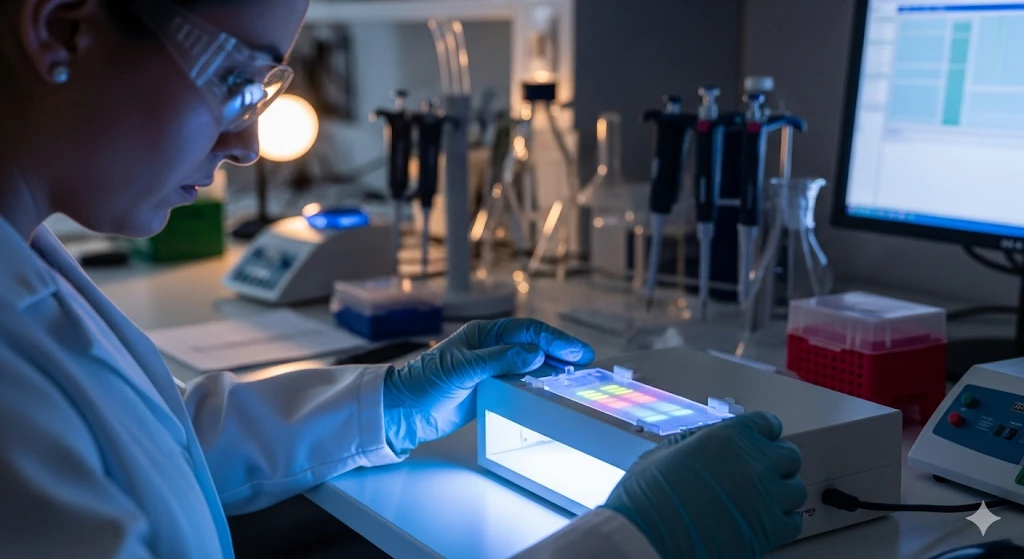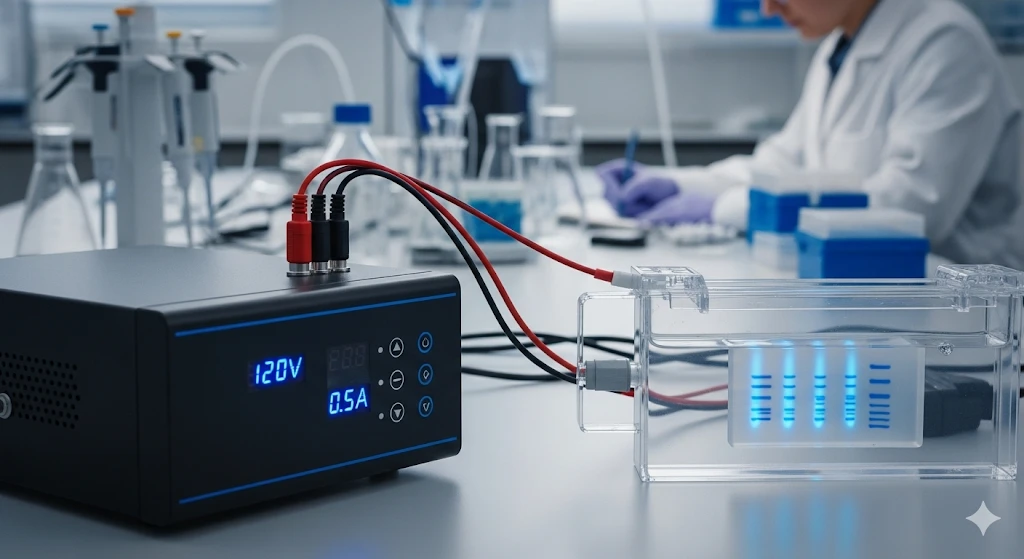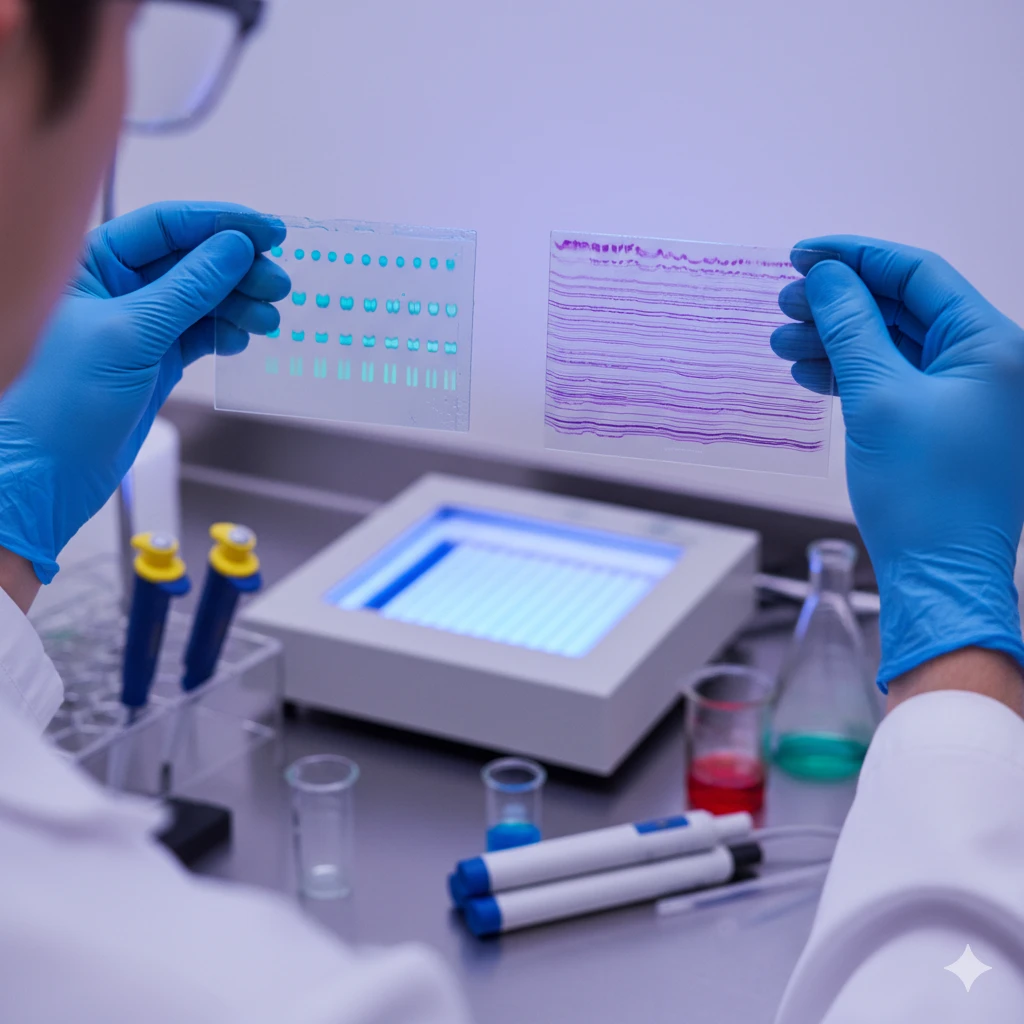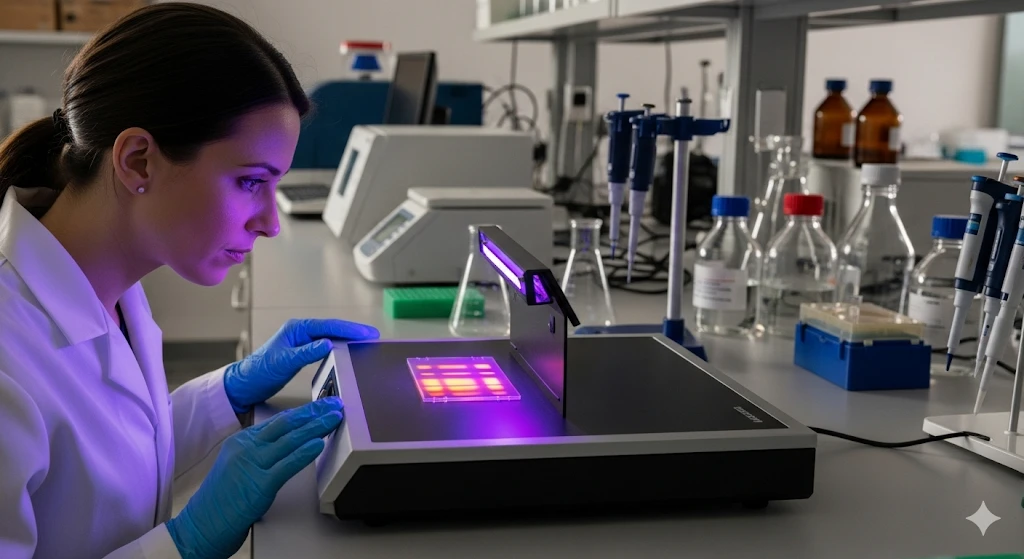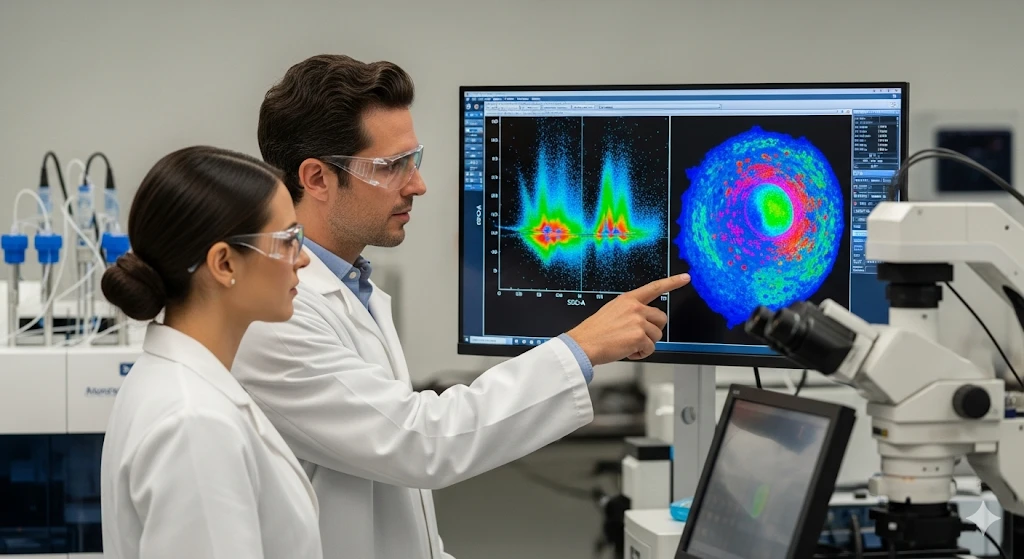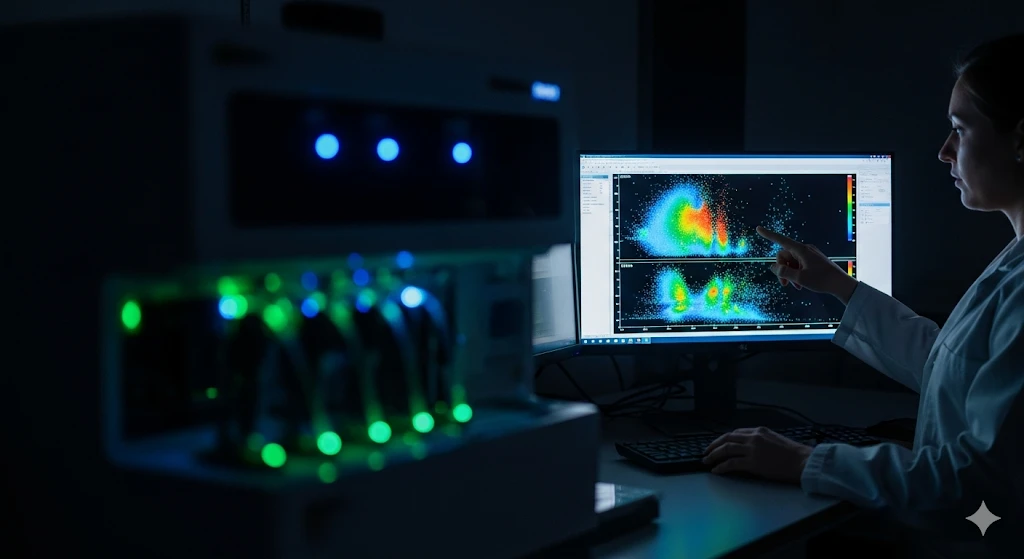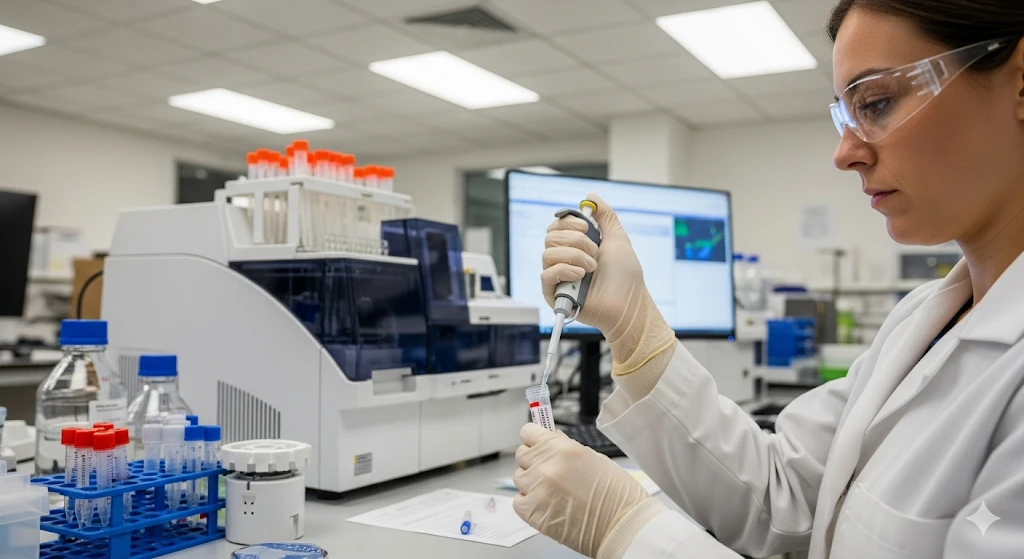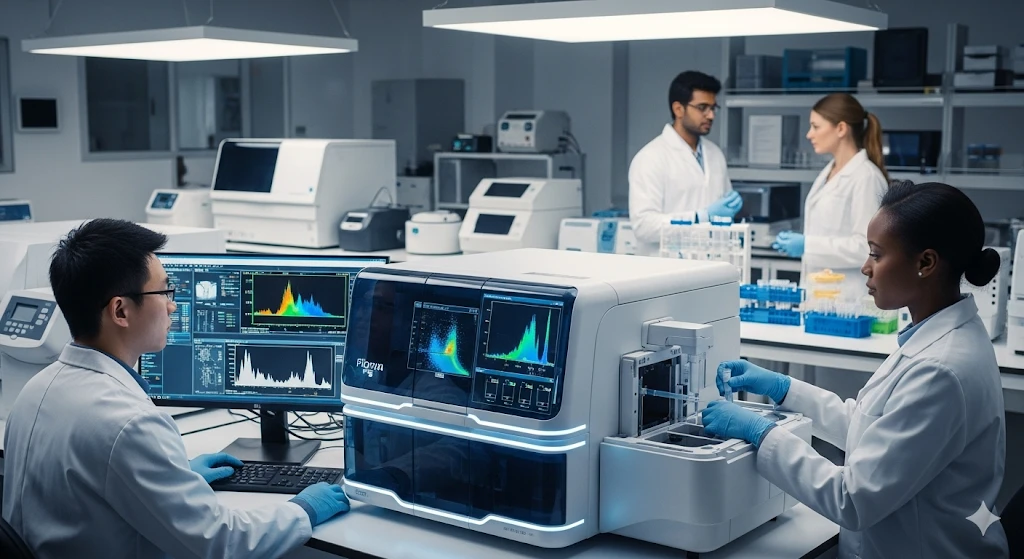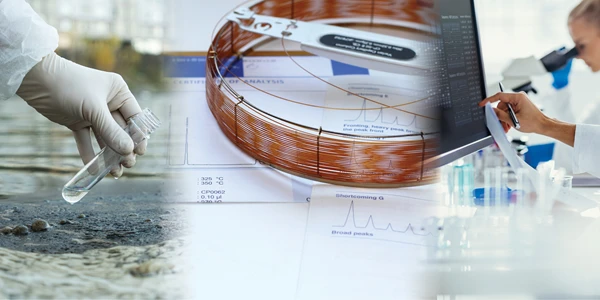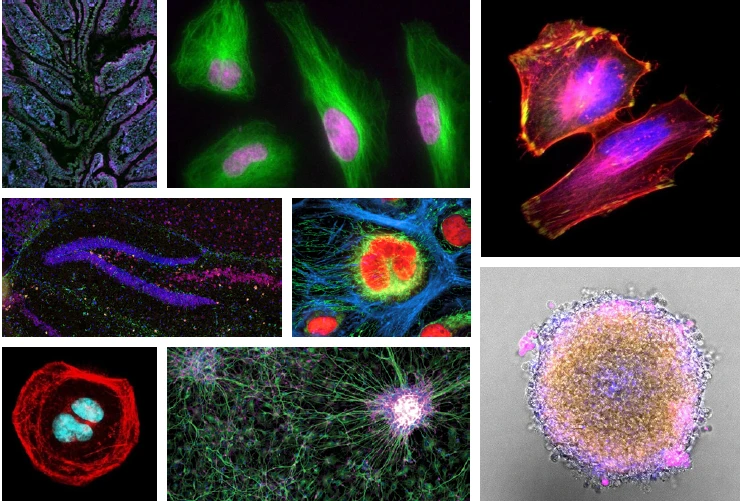Future Trends in the Cannabis Industry: Interactive Infographic Timeline
The cannabis industry has reached a tipping point - with many important developments and breakthroughs now in focus. Despite progress on all fronts, hurdles remain in realizing the full potential of medicinal marijuana. The true merits of cannabis hemp depend on continued progress in multiple areas -- the climate is right to reap the benefits of this promising therapeutic and industrial crop.
The Future Trends in the Cannabis Industry Interactive Infographic is a living resource keeping pace with the rapidly evolving cannabis industry.
This post serves as a chronology of the infographic, citing ongoing technical developments in the areas of: Advancements in Instrumentation, Advancements in Research, Testing Standardization, Genomics and Chemotypes, and Quality Control Improvements.
 Advancements in Instrumentation
Advancements in Instrumentation
Harvesting
Passage of the 2018 US Farm Bill has enabled large-scale hemp farming by registered cultivators. Re-purposing of equipment from areas such as tobacco farming has allowed harvesters to be adapted to handle the multiple challenges of hemp farming. Innovations in harvesting equipment and methods can now specify distinct hemp plant varieties, growth density, and plant stalk processing, for textile versus CBD oil production.
- 10/2019 - Automated control systems are now built into modern harvesting equipment, enabling efficient removal of buds and flowers from plants during early processing.
- 11/2019 – Hemp field point-of-use analytics for on-site testing is in the development phase and gaining momentum. The USDA rolls out the Domestic Hemp Production Program.
- 12/2019 - The USDA is creating the country’s first hemp seed bank with the help of Cornell AgriTech.
- 1/2020 – Automation is taking a front seat in cannabis harvesting, as hemp farmers gain expertise and processing systems are being effectively designed and implemented.
- 3/2020 – Hemp farming and extraction operations, and supply chain issues including bank financing and buyer contract fulfilment, stand to benefit from infrastructure improvements in the industry.
- 8/2020- Precision Extraction Solutions has created the CRS 2000, a solvent-free harvesting and refinement system that utilizes patent pending technology to harvest, dry and purify biomass from cannabis and hemp plants.
- 8/2020 - New solutions in hemp harveting include equipment that removes entire plants intact, rather than shredding the stalks and stems together, leaving flowers and CBD content avaible for processing -- thereby increasing CBD yield.
- 10/2020 - Shimadzu has developed a brand-new hemp brochure that is not flower centric and is focused on industrial applications utilizing the rest of the plant such as the stalk, seeds, leaves, and roots.
- 4/2021 - Greenbroz has launched the Rise-and-Sort Post-Harvest Processing System, which enables users to efficiently consolidate the movement and segregation of product into differing size groups. This three-part system allows a processing rate of 6 pounds per minute, representing a increase compared with the rate of 2 pounds per hour for hand processing.
- 9/21 - The California Department of Fish and Wildlife (CDFW) is launching an initiative titled the Cannabis Restoration Grant Program, to allow cannabis cultivators to apply for and secure tax-dollar funds for environmental cleanup of farming sites.
Extraction
Innovations in efficiency and safety has made hydrocarbon extraction accessible to a broader range of operations. Supercritical carbon dioxide and other solvent-free extraction techniques have increased efficiency, safety, and yield of cannabis processing. Innovative technologies involving ice-water, sonication, and other techniques are expanding the breadth and depth of extraction capabilities.
- 10/2019 - Hydrodynamic force and ultrasonication techniques are enabling compound preparation from whole plants. Large-scale on-site hemp farm extraction has become a reality, cutting costs in transportation and logistics.
- 1/2020 – Sous-vide decarboxylation is gaining popularity as a preparation boutique method for consistent cannabinoid activation.
- 3/2020 – Advancements in nanoemulsion and encapsulation technologies are solving issues with solubility, delivery, and bioavailability of cannabis and cannabinoid formulations.
- 4/2020 – A recent study demonstrated the advantages of Pressurized Hot Water Extraction (PHWE) as an efficient, fast, green technique for the isolation of polar and semi-polar compounds from Sativa.
- 8/2020 - Researchers have developed and patented an improved pulping method that uses a naturally derived solvent, creates no toxic waste, emits no carbon dioxide, and converts nearly 100% of the hemp plant into useable components.
- 11/2020 - A recent study investigating cannabis extract stability concluded that storage of whole inflorescences and extracts dissolved in olive oil, at 4°C, were the optimal postharvest conditions.
- 3/2021 - A recent podcast with Markus Roggen PhD explores the chemistry of cannabis, from harvest, through processing and extraction, all the way to formulations and quality control analysis.
- 4/21 - Cannabis extractors are experimenting with better ways to use light, heat and pressure to facilitate the way THC degrades into CBN, a minor cannabinoid of interest for its therapeutic potential. Such techniques may also be valuable in THC remediation to chemically convert and affectly remove excess THC in hemp, for example, in order to bring extracted product under the threshold of legalization.
- 5/21 - The method of triple extraction, in which compounds are fractionated during the extraction process based on molecular weight, is gaining momentum as a way of obtaining multiple enriched preparations from a single source.
Purification
Advanced sample enrichment, HPLC column offerings, and LC techniques have enabled high-quality analytical separations and analysis of cannabis compounds. Gas chromatography and GC-MS techniques have supported advanced analysis of organic and volatile terpene compounds. Fractional and thin film distillation techniques adapted from the petrochemical and chemical industries have enabled high purity large-scale cannabinoid isolation.
- 12/2019 – Increased attention is being focused on water-soluble cannabinoids derived through colloidal purification techniques for better bioavailability and dosage monitoring. Water-soluble cannabinoids taken by sublingual route can have effects in seconds to minutes with little loss of potency, compared to consumables which can take minutes to hours and result in up to 50 percent or more loss in potency.
- 2/2020 – The concept of “THC Remediation”, to remove “background THC” and permit legal growth and production of CBD hemp, is being addressed by emerging chromatographic, catalytic, and extraction refinement technologies.
- 4/2020 - Supercritical fluid chromatography (SFC) is gaining prominence as a preferred technique with advantages due to higher flow rates, less solvent use, better environmental impact, and reduced costs compared with traditional HPLC.
- 5/2020 - A recent study demonstrated methods for simultaneous determination of terpenes and cannabidiol in hemp (Cannabis sativa L.) by fast Gas Chromatography with Flame Ionization Detection.
- 8/2020 - A recent study "Stability characteristics of cannabidiol for the design of pharmacological, biochemical and pharmaceutical studies" demonstrated thermolability, oxidtive sensitivity, oxidative photolytic reaction tendency, and insolubility of purified CBD at physiological pH, pointing to potentially serious implications for shelf life of CBD preparations and products.
- 8/2020 - A recent study titled "A High-Throughput Method for the Comprehensive Analysis of Terpenes and Terpenoids in Medicinal Cannabis Biomass" details an advanced method for simultaneous detection of 48 terpenes -- applicable to testing labs and processing facilities with potentially significant improvements in resource usage and productivity.
- 9/2020 - Willow Biosciences has started a pilot production run of cannabigerol, or CBG, generated from Yeast -- and other cannabinoids are in the works to be produced with pharmaceutical-grade purity from this biosynthetic source.
- 10/2020 - Sanobiotec announced the synthesis of pure and stable Tetrahydrocannabivarin (THCV), a rare cannabinoid compound that has demonstrated efficacy in pre-clinical studies as an anti-inflammatory, anti-
psychotic and neuro-protectant. - 11/2020 - Shimadzu reports that it's Cannabis Analyzer, orginally marketed to measure 11 main cannabinoids, can effectively measure a total of 15, inlcuding THCVA, CBDVA, CBL, and CBCA.
- 12/20 - Shimadzu released a new application note titled, "A High-Throughput Potency Determination of 19 Cannabinoids in Hemp Plant Material and Finished Tinctures using LabSolutions and the Cannabis Analyzer for Potency™"
- 11/2021 - The new LC 300 HPLC system from PerkinElmer is an all-in-one solution for cannabinoids testing, and includes: all system components, installation, and training; SimplicityChrom™ chromatography data system (CDS) software; and on-board methods for the chromatographic separation and quantitative monitoring of sixteen primary cannabinoids, including THC, THC-A, CBD, and CBD-A, in cannabis flower extracts and edibles by HPLC combined with PDA detection.
Potency Testing
Hemp farming regulations now necessitate potency testing on-site at grow operations. Turn-key solutions are enabling testing by a wider range of operators, experience levels, and in remote processing locations. Third party testing labs and quality assurance labs are strengthening the integrity and safety of cannabis potency testing. Large-scale labs are focusing on potency and contaminants testing specifically for hemp-derived CBD products.
- 11/2019 – The recently approved USDA guidelines for hemp and hemp-derived derivatives will clarify THC and CBD potency testing as well as quality control standards.
- 1/2020 – Scientists have discovered two novel cannabinoids in cannabis which are analogues of the well-known THC and CBD compounds. Once of these, THCP, was shown to bind CB1 receptors with 30-fold higher affinity and demonstrated several times the potency of THC in mouse models.
- 3/2020 – FTIR, NIR, NMR and other analytical techniques are being harnessed particularly for on-site, field-testing applications, due in part to the compact size of the instrumentation and ease of operation.
- 4/2020 – The Midwest Regional Laboratory in Andover, Minnesota is a publicly funded lab planning to test THC and CBD potency in products sold by traditional retailers.
- 9/2020 - Shimadzu has published an application note that discusses the advantages and demonstrates the use of super critical fluid chromatography SFC to quantitate 9 cannabinoids in hemp flower.
- 12/20 - Agilent offers a catalog of cannabis and hemp potency testing resources, including instrument selection criteria, quality control methods for use in regulated labs, and other valuable insight.
Contaminants Testing
Microbial diagnostic instruments are being developed and deployed on-site at grow operations to detect pests prior to processing. Testing labs are utilizing built-for-purpose PCR, RT-PCR, and test reagents and kits to identify the range of microbes posing a possible threat. GC, LC, MS, and ICP-MS techniques and instruments are increasing the sensitivity and scale of residual solvent and heavy metals detection in processed materials.
- 11/2019 – Vitamin E Acetate, a THC thinning agent and vaping accelerant, has been targeted as the chemical responsible for the current vaping illness problem. The CDC has published supporting evidence of this finding.
- 1/2020 - Companies are developing sensitive tests for identifying vitamin E acetate in vaping products
- 2/2020 – Portable cannabis testing methods and devices aim to detect desirable crops and to offer test accuracy at the source of cannabis production.
- 2/2020 – A study has demonstrated the formation of hydrogen bonds between THC and Vitamin E Acetate in un-vaped, aerosolized, and condensed aerosol e-liquids.
- 6/2020 - A study entitled, “Cannabis Inflorescence for Medical Purposes: USP Considerations for Quality Attributes” by the United States Pharmacopeia (USP), has evaluated specifications necessary to define key cannabis quality attributes -- including preferred qPCR methods for Aspergillus testing.
- 7/2020 - A SARS-CoV-2 qPCR assay for cannabis has been developed.
- 10/2020 - AOAC INTERNATIONAL has launched a new project to develop technical requirements, evaluate, and certify the performance of test kits that enumerate total yeast and mold organisms in cannabis flower.
- 12/2020 - A new study titled, "HRMS Detector for the New HILIC CBD Method Development in Hemp Seed Oil" describes a method using high resolution mass spectrometry combined with hydrophobic interaction liquid chromatography (HILIC) to sucessfully quantitate CBD in blended hemp seed oils, which had previously been complicated by triacylglyceride (TAG) matrix build-up in reverse phase columns.
- 2/2021 - AOAC is testing Medical Genomics PatoSEEK qPCR method for Total Yeast and Mold (TYM) testing as part of an Emergency Response Validation (ERV) in response to Michigan expressing concern for this source of contamination.
- 9/21 - National Institutes of Standards and Technology (NIST) has issued a Special Notice Contract Opportunity for the design and development of autosampler devices that can interface with their existing low-field NMR instrumentation used for chemical analysis of cannabis. This contract is available for analytical instrument developers with small company sizes less than 1000 employees.
- 11/21 - AOAC INTERNATIONAL has announced that Agilent, in partnership with CEM, has received approval of an analytical method for the determination of heavy metals in cannabis using inductively-coupled plasms mass spectrometry (ICP-MS) technology.
 Advancements in Research
Advancements in Research
Research Initiatives
Certified medical cannabis academic clinical research centers have been established. States now sponsor medical cannabis research grants in areas including autism, opioid abuse prevention, neurological diseases, and others. Passage of the Medical Cannabis Research Act will allow increased numbers of federally-registered manufacturers of cannabis for legitimate research purposes. State universities are now offering advanced degrees and certificates in medical cannabis research, operations, policy, and industry consulting.
- 1/2020 – The UCLA Cannabis Research Center supports active research in areas including: adolescent use and brain development, mental health implications of cannabis, use of CBD and other cannabinoids in pain, inflammation, neuropathy and other conditions. Institutes including the Center for Medicinal Cannabis Research (CMCR) at the University of San Diego and the Institute of Cannabis Research (ICR) at Colorado State University are advancing cannabis investigations through the use of state funds.
- 4/2020 - In a recent peer review study, the quality of over-the-counter CBD products in the United Kingdom was shown be substandard, particularly with regard to CBD content, and in some cases containing detectable levels of controlled substances indicating these products should be more strictly regulated for consumer welfare.
- 5/2020 - The director of the Marijuana Investigations for Neuroscientific Discovery (MIND) program at McLean Hospital, Gruber will use money from the recent $9M grant to help identify differences between a whole-plant, full-spectrum cannabis product and a product made from a single extracted compound.
- 7/2020 - A recent review outlined the importance of randomized blinded clinical trials and barriers to studies - "Perspectives on Cannabis Research—Barriers and Recommendations".
- 12/2020 - The US House of Representatives voted in favor of the Medical Marijuana Research Act, which mandates the Drug Enforcement Administration (DEA) to license additional growers and enforce no limit on the number of additional entities that can be registered to cultivate marijuana for research purposes.
- 5/2021 - Project Twenty21 (T21), a UK clinical research initiative to study the effects of cannabis on a wide range of disorders, has published preliminary findings indicating a significant number of responding patients reported increases in health and wellness.
- 7/21 - A commentary recently published in Cell Press suggests planting small fields of fiber hemp removed a primary type of PFAS at the polluted site, a chemical called perfluorooctanesulfonic acid (PFOS). This offers promiss for bioremediation of these so-called forever chemicals from contaminated sites.
- 9/21 - The DEA has proposed massive increases in cannabis production to fuel an escalation in research that is needed to support federal approval of new potential therapeutics.
- 11/21 - The U.S. Food and Drug Administration (FDA) has released its Cannabis-Derived Products Data Acceleration Plan (DAP), intended to leverage “novel” data sources to assess the safety and efficacy of cannabis-derived products (CDPs), as well as forge government data partnerships and advance scientific research to evaluate consumer vulnerabilities.
Federal and State Research Funding
US federal agencies now fund research regarding the impact of cannabis on: opioid abuse, pain treatment, prenatal and adolescent exposure, mental and mood disorders, HIV, and others. Federal funding programs include research into quality control, potency testing, and other analytical considerations.
- 10/2019 - The DEA has reiterated the promise to prioritize cannabis research. The US plans the invest 3 M to research the use of CBD as a therapeutic platform.
- 12/2019 - Ziva Cooper, research director of the UCLA Cannabis Research Initiative, has been awarded a $3.5 million grant from the National Institutes of Health to conduct a five-year study assessing the pain-relieving effects of cannabis and cannabinoids, the chemicals in the cannabis plant.
- 4/2020 - A multidisciplinary team led by researchers at the Rady Faculty of Health Sciences have received a $1.5 million team grant from the Canadian Institutes of Health Research’s Institute of Cancer Research and the Canadian Cancer Society to study the use of medical cannabis in children with cancer across Canada.
- 12/2020 - Passage of the More Act requires the U.S. Department of Health and Human Services (HHS) to submit a report to Congress within five years after enactment to overview the results of federal cannabis studies and recommend whether they warrant marijuana’s rescheduling under federal law.
- 2/2021 - The USDA is funding creation of a new $66 million Agricultural Resource Service lab where scientist will study hemp farming, fiber, and plant breeding.
- 3/21 - Michigan's Marijuana Regulatory Agency has earmarked $20 million in tax revenue for funding research and clinicals trials, with a focus on chronic pain and PTSD among military personnel and veterans.
Clinical Research & Trials
The US FDA approval of pharmaceutical-grade cannabidiol (CBD) and removal of Schedule I substance designation will likely open the door for further research and clinical trials. Private pharma and public research institutions are partnering on clinical research into cannabinoid-based cancer treatments and other areas.
- 10/2019 - Medical research, trials, and education continue to lag despite expansion of state-level legalization. Health Canada is sponsoring clinical trials on the safety and efficacy of cannabis edibles.
- 11/2019 - Clinical and preclinical research is accelerating due to expanded hemp production and positive CBD patient data and results.
- 12/2019 - The FDA has approved a human trials study by the Yale School of Medicine and CT Pharma investigating the effectiveness of cannabis-based medicines; it’s the first cannabis study on human subjects to be approved by the FDA.
- 1/2020 – A study published in Nature Scientific Reports showed fetal growth restrictions after THC administration using a rat model of pregnancy, supporting some of the fetal development concerns shown previously.
- 2/2020 – Elixicure, a CBD pain relief topical formulation, is the first over-the-counter CBD drug to be approved by the FDA.
- 3/2020 – A recent study demonstrated anti-bacterial activity of cannabigerol (CBG) against both gram-negative and gram-positive pathogens including methicillin-resistant Staph aureus (MRSA).
- 4/2020 - A new study in Nature Science Reports implicates cannabidiol (CBD) as an effective helper compound when used in combination with bacitracin to kill Gram-positive bacteria.
- 5/2020 - Project 21 in the UK, intended to test a range of conditions, including chronic pain, epilepsy, multiple sclerosis, post-traumatic stress disorder, Tourette’s syndrome, and anxiety disorder, received its first batch of medical cannabis products issued to UK doctors for the 20,000 patients expected to be involved in the registry.
- 7/2020 - Researchers at the Technion - Israel Institute of Technology and at the Shenkar Institute have developed an innovative drug delivery system that releases medical cannabis slowly to provide tailored treatment with a long-lasting effect.
- 8/2020 - The Food and Drug Administration (FDA) has published draft guidance on research and development of cannabis-based drugs.
- 9/2020 - The Medical Cannabis Real-World Evidence (MC-RWE) study will involve at least 2,000 participants whose medical cannabis use will be observed over a period of 24 weeks. Those in the study will be able to access a range of medical cannabis products that have consistent genetic, chemical, cannabinoid, and terpene profiles, which will address an ongoing issue with anecdotal evidence.
- 10/2020 - A recent report in the journal Cell showed that mice with elevated levels of the endocannabinoid 2-arachidonoyl glycerol (2-AG) are protected from enteric infection by Enterobacteriaceae pathogens, supporting the role of endocannabinoids in gut microbe regulation and health.
- 2/2021 - Researchers report in ACS Chemical Neuroscience use of molecular modelling to identify possible therapeutic effects of CBD on the amyloid peptides associated with Alzheimer's Disease.
- 9/21 - A recent comprehensive review of the literature has indicated that CBD is a proven therapeutic for pain. There is a lack of consensus data regarding the most effective formulation for delivery of this therapeutic effect, and whether this involves: purified CBD extracts, full spectrum extracts, or plant cultivars with varying concentrations of additional cannabinoids and terpenoids. Furthermore, data is lacking in support of the purported "entourage effect" for CBD-induced pain relief.
Legal Reform
The majority of US states have legalized cannabis for medical use and several countries have legalized cannabis for medical and recreational use. The end of hemp prohibition in the US is leading increased interest in applied research in areas including cannabinoid production, industrial use, genetics, and other important applications.
- 10/2019 - Pennsylvania governor has called for complete legalization of recreational and medicinal cannabis. Congress has voted on the historic Marijuana Banking bill.
- 11/2019 – Positive CBD clinical results are impacting global markets and regulatory reform. The White House has approved interim plans submitted by the USDA to regulate hemp and hemp derivatives. The plan will provide clarity to potency testing and quality control standards.
- 12/2019 - Members of the United States House Judiciary Committee passed legislation, House Bill 3884: The Marijuana Opportunity, Reinvestment, and Expungement (MORE) Act, which aims to remove the marijuana plant from the federal Controlled Substances Act, thereby enabling states to enact their own cannabis regulations free from undue federal interference.
- 1/2020 – Having passed the House of Representatives, the US Senate will likely hold a vote in early 2020 on the Secure and Fair Enforcement (SAFE) Banking Act, which allows for businesses to legally engage with financial institutions.
- 2/2020 - A bill has been introduced to amend the Federal Food, Drug and Cosmetic Act (FDCA) to include hemp-derived CBD as a dietary supplement.
- 4/2020 – Interim Final Rules mandating that hemp cultivators use DEA-registered testing labs has been delayed by Agriculture secretary Sonny Perdue.
- 4/2020 – The DEA has announced it is taking decisive steps to expand marijuana research, including approval of additional growers and types of marijuana available for research studies.
- 4/2020 – Recent studies examined the feasibility of standardizing THC dosages in marijuana products
- 11/2020 - The US House of Representatives is scheduled to vote in December on the The MORE Act, which proposes to federally deschedule cannabis, expunge the records of those with prior marijuana convictions, and impose a federal five percent tax on sales.
- 12/2020 - The House of Representatives voted in favor of the MORE Act which is intended to federally legalize cannabis, upon passage by the Senate and pending the President's approval.
- 4/2021 - Intellectual Property (IP) has become a critical factor among cannabis processors, helping differentiate competitive advantages and create value for mergers and acquisitions.
- 9/21 - The FDA has rejected the classification of CBD as a dietary supplement, citing prior classification of CBD as an approved drug (Epidiolex) and stating that the manufacturers of CBD preparations have not sufficiently deemed products safe for consumption.
- 12/21 - California is enforcing a new state mandate to require all 41 testing labs to adopt standardized testing methods, to be developed by two labs designated by the Department of Cannabis Control and used in validation across the testing lab community.
Philanthropy & Sponsored Research
Philanthropic initiatives offer support for cannabis research. Private companies now sponsor clinical research into cannabis influences on sleep disorders and a wide range of other indications. Products and technologies as diverse as Legos and the 3-D printing industry have embraced research and development into new sustainable hemp-based manufacturing.
- 10/2019 - The Journal of Cannabinoid Medicine has been started with the goal to provide the FDA with a reputable source for validated cannabis research.
- 1/2020 – Atlas Biotechnologies is investing 300M and partnering with University of Alberta in clinical research to investigate whether cannabis can effectively treat multiple sclerosis, Alzheimer’s, or Huntington’s Disease.
- 2/2020 – A strategic partnership between Agilent and Lake Superior State University, and the formation of the LSSU Cannabis Center of Excellence (CoE), seeks to facilitate education and research into cannabis chemistry and analysis.
- 2/2020 – Private beer and cannabis companies, Denver Beer Co., The Clinic, and Earthly Labs are collaborating and exploring methods to capture carbon dioxide from the brewing process, and use this in cannabis cultivation, thereby increasing production, yields, and cost efficiencies.
- 2/2020 – Front Range Biosciences is collaborating with CRAC and UC Davis to explore unique traits underlying disease resistance and yield optimization.
- 5/2020 - A $9M grant was given to investigators at MIT and Harvard Medical School (HMS) to conduct research that may help unravel the biology of cannabinoids, illuminate their effects on the human brain, catalyze treatments, and inform evidence-based clinical guidelines, societal policies, and regulation of cannabis.
- 6/2020 - Charlotte's Web Holdings Inc. and six other CBD brands, are suporting a human trial study to ascertain if daily use of full spectrum hemp-derived CBD or CBD isolate has any impact on the human liver.
- 8/2020 - Marijuana multistate operator Parallel will provide $3 million in grants to the University of Pittsburgh to research medical cannabis under a 10-year agreement, the eighth and final of such alliances permitted under Pennsylvania’s medical marijuana rules.
- 2/2021 - The company 3M is exploring the use of hemp as a sustainable solution in many products including: consumer and industrial adhesives, garbage and plastic bags, surgical gauze, agricultural sheeting, and a growing matrix for biomedical research and clinical applications.
- 4/21 - Steadfast Labs, a Michigan-based research facility with the goal of ensuring access to safe cannabis medicine, has established an annual $1,200 scholarship for cannabis chemistry students at Lake Superior State University. LSSU established Cannabis Center of Excellence in 2019, the first chemistry academic program focused on cannabis.
- 9/21 - A recent study by researchers at Janssen Pharmaceuticals described two compounds that act as potent agonists for endogenous cannabinoid receptors, and may have activity in treatment of pain, neurologic disorders, obesity, and many others. These compounds have received patent protection.
 Testing Standardization
Testing Standardization
Universal Validation Methods
Enactment of federal testing mandates of cannabis and cannabis compounds will ease conflicts between growers, processors, and law enforcement. Universal procedures will include testing at the grow, harvest, extraction, formulation, and consumer product stages. Testing sites will benefit from well-validated methods for instrument calibration, accuracy, intra- and inter-day precision, and other figures of merit.
- 10/2019 - Proficiency testing and harmonization across testing labs is providing a forum to examine test precision, reliability, and product safety.
- 4/2020 – The National Institute on Drug Abuse is asking for public input on THC standardized dosages in marijuana products, suggesting 5 mg as a universal standard.
- 4/2020 - AOAC International has approved an analytical method for detecting THC in hemp. Validation will now allow labs to evaluate hemp for THC on a dry-weight basis, as required by the 2018 Farm Bill.
- 5/2020 - The Association for the Cannabinoid Industry (ACI) in the UK announced high-level discussions with the Laboratory of Government Chemists (LGC) that will focus on the development of a cannabinoid testing methodology with a higher precision control, an essential step towards standardisation for the UK industry.
- 7/2020 - The European Industrial Hemp Association has voted to move forward with “unprecedented” studies on cannabidiol and THC as part of a joint novel food authorization application mandated by EU authorities.
- 9/2020 - NIST declared in a July 2020 press release that the new Cannabis Quality Assurance (CannaQAP) initiative will “help laboratories accurately measure key chemical compounds in marijuana, hemp, and other cannabis products,” “The program aims to increase accuracy in product labeling and help forensic laboratories distinguish between hemp, which is legal in all states, and marijuana, which is not.”
- 2/2021 - New Frontier Data, in partnership with Emerald Scientific, has released the industry report, "Cannabis Proficiency Testing: The New Industry Imperative for Quality and Consumer Safety". The study analyzes quality and safety testing across the industry, concluding that proficiency testing represents a top priority and major share of the global cannabis testing service industry.
State Testing Standards
The majority of states have approved medical cannabis programs and state specific testing criteria. Legalization of hemp has accelerated the entry of high CBD, low THC products into the market. Harmonization of state-specific testing criteria will address concerns over product and patient safety – particularly critical now with legalization of interstate hemp commerce.
- 3/2020 – State cannabis regulators are grower stricter in enforcing rules while also building solutions to solve violations.
- 4/2020 - Cannabidiol (CBD) extract from hemp is now legal to use as a food ingredient in Virginia, after a legalization bill was signed by Gov. Ralph Northam, although testing hemp to ensure <0.3% THC remains a challenge with no universal solution.
- 5/2020 - A recent modelling study found that CA state regulatory testing accounts for on average 10% of cannabis wholesale price - Costs of cannabis testing compliance: Assessing mandatory testing in the California cannabis market
- 10/2020 - A recent report titled Cannabis Chemovar Nomenclature Misrepresents Chemical and Genetic Diversity; Survey of Variations in Chemical Profiles and Genetic Markers in Nevada Medical Cannabis Samples, indicated strain names used by state regulators had minimal correlations with chmical profiles and differences in actual cannabis types or chemovars.
- 11/2020 - Marijuana regulators from 19 states have established a nonpartisan organization, the Cannabis Regulators Association (CANNRA), to share best practices and industry knowledge to assist federal, state and local authorities that have approved or are considering legalization.
Federal Guidelines
The 2018 Farm Act declassified hemp, making grow and processing operations legal with certain restrictions and required licensing. The DEA has removed CBD from Schedule 1 drug status and the Federal Drug Administration (FDA) is drafting measures for the regulation and testing of CBD products at the federal level.
- 10/2019 - The FDA is expediting efforts to develop regulations for CBD, describing it as an important issue for stakeholders, farmers, patients, and consumers.
- 11/2019 – The USDA is enacting standards for testing quality control.
- 12/2019 - Based on the lack of scientific information supporting the safety of CBD in food, the FDA has stated that it cannot conclude that CBD is generally recognized as safe (GRAS) among qualified experts for its use in human or animal food.
- 1/2020 – The USDA has issued an interim final rule for guidelines regarding proper cultivation, harvest, processing, and testing of legal hemp, along with registration requirements for production. Public comments are accepted through Jan 31, 2020. The interim final rule remains in effect for two years, which allows time both to make it through a full crop cycle and for USDA to deliver a final rule. The USDA has approved the hemp regulatory plans for three states and three Indian tribes based in the interim guidelines.
- 2/2020 – The USDA has received over 4,600 public comments regarding the proposed hemp cultivation final rules, prior to the deadline for submission.
- 3/2020 - The U.S. Department of Agriculture approved hemp plans from Georgia and Montana. The federal government has now approved proposals from 10 states and twelve Indian tribes.
- 4/2020– The USDA final rules for hemp testing standardization and enforcement will enable another cycle of hemp cultivation before the rule are implemented.
- 9/2020 - The Food and Drug Administration is seeking contractors to help test thousands of CBD-infused foods, drinks, oils, cosmetics and other products for cannabinoid content and contaminants such as pesticides and microbes. "These studies and the analytical information they obtain will not only be reported to Congress, but will also be used to guide the development of future policy."
- 12/2020 - In a landmark ruling, the European Union has determined that CBD derived from the Hemp plant is not a narcotic and therefore subject to EU laws regarding the free movement of goods and services among member states.
- 5/2021 - The National Institute on Drug Abuse (NIDA), in concert with other NIH institutes, has published a notice in the NIH Guide directing researchers funded by these institutes to measure and report their findings from clinical research on cannabis using a standard unit of THC of 5 milligrams.
Cultivation - Process Testing
Testing standardization includes monitoring compound production during cultivation and harvesting. Turn key testing solutions will allow growers to test plants for limits, for instance <0.3% THC in hemp crops, to ensure legal status is maintained. Testing at the post-harvest and extraction stages will confirm yields and legal processing thresholds as well.
- 1/2020 – Portable testing techniques, such as those employing Near Infrared (NIR) Spectroscopy, are enabling chemical analysis of cannabis at the site of cultivation. Cloud-based applications are enabling point of testing validation with databases to ensure transparency and integrity in production procedures.
- 2/2020 – The development of handheld scanners, based on Raman or FTIR spectroscopic analysis, may offer cost and safety advantages to hemp cultivators, avoiding crop loss due to elevated and illegal THC levels.
- 5/2020 - Montana hemp growers have voted to establish a 1% checkoff for hemp, making Montana the first state in the nation to establish a hemp checkoff. Checkoff funds are used to fund activities related to research, market development, and education.
- 6/2020 - A recent study "Raman-Based Differentiation of Hemp, Cannabidiol-Rich Hemp, and Cannabis" demonstrated the feasibility of using handheld raman devices for cannabinoid testing.
- 6/2020 - A field study was performed to investigate the development of cannabinoids in flowers of industrial hemp, which showed the CBD/THC ratio in flowers dynamically changed during the entire reproductive stage.
- 6/2020 - Environmental monitoring technologies are using IoT and cloud-based methods to monitor: temperature, relative humidity (RH), vapor pressure deficit (VPD), light intensity, dew point, and other important aspects of grow operations.
- 8/2020 - A recent study examined "the use of hyperspectral near-infrared imaging to identify the Cannabis sativa plant components such as flowers, stems and leaves on the crop," which could provide "a real-time monitoring system that would support decision-making on the optimal daily growing conditions to improve crop yield and profitability".
- 1/2021 - A recent study titled "Cannabis Yield, Potency, and Leaf Photosynthesis Respond Differently to Increasing Light Levels in an Indoor Environment" found no correlation between light intensity and cannabinoid potecy in plants, however, light intensity was positively associated with slight rises in terpene production.
- 9/21 - A recent study from Cornell University has found no relationship between environmental stress from cultivation conditions and the appearance of elevated THC production (>0.3%) in hemp. The work indicates that genetics play a dominant role in determining which CBD-producing hemp crops produce excess THC, rendering these crops "hot" or illegal for processing.
 Genomics & Chemotypes
Genomics & Chemotypes
Cannabis Genetic Sequencing
The sequencing of the cannabis genome and cannabis subtypes has helped delineate the genes and variations underlying strain specific production of THC, CBD, and other medically important cannabinoids and terpenoids. Further genomic information will assist in selective breeding and genetic modification for select applications.
- 10/2019 - An initial draft of the cannabis proteome has been published.
- 1/2020 – A landmark cannabis genomics collaborative study has identified genes for cannabinoid production, pathogen resistance.
- 3/2020 – Epigenetic approaches are being used to optimize breeding, cultivation, pest resistance and higher crop yields.
- 8/2020 - A recent paper explored "De novo assembly and annotation of transcriptomes from two cultivars of Cannabis sativa with different cannabinoid profiles".
- 10/2020 - Innovative new techniques for artificial selection, genetics optimization, and data analytics are making it possible for producers to optimize genotype identification and strike a balance between diversity and consistency.
- 11/2020 - Medicinal Genomics now offers the CannSNP90 based on a 24 sample bead chip from Illumina to screen our over 89K targets, for analysis of trait specific markers including cannabinoid genes, terpene genes, plant sex, disease resistance, chemotypes, and other qualities.
- 10/2021 - An Isreali company, CannBreed, performed what is believed to be the first commercial genome editing of cannabis using CRISPR/Cas9 in order to make the plant less susceptible to mold and mildew. The company plans to market cannabis seeds that have a powdery mildew resistance trait, and hopefully edit additional genes to enhance other traits in the plant.
Genomic Databases
Products and services have arisen to support strain-specific genotyping. The use of sequencing information and sequence databases will help in cannabis DNA fingerprinting, authentication, and measures to increase crop yield and medicinal quality, among other benefits.
- 10/2019 - Consumer testing technologies are uncovering susceptibility traits that enhance or inhibit the beneficial qualities of cannabis.
- 1/2020 – Genomic progress is enabling breeders to use genetic information to make informed decisions about cannabinoid production, crop resistance, and other important factors.
- 7/2020 - A recent study explored advanced techniques in cannabis proteomics - "The Power of Three in Cannabis Shotgun Proteomics: Proteases, Databases and Search Engines".
- 8/2020 - Several universities and private labs are collaborating to develop a public hemp database, a resource to provide insight into agronomic performance and cannabinoid development of modern hemp varieties.
- 10/2020 - Medicinal Genomics launched Kannapedia in 2016 to publish genetic reports that were generated using the company’s StrainSEEK® Identification and Registration service. Since then, Kannapedia has become one of the largest public databases for cannabis and hemp genetic information, housing important information about each cultivar’s rarity, genetic distance from other sequenced cultivars, coverage over important markers, and more.
- 10/2021 - Kannapedia 2.0 has been released as an update to the popular genetics report platform from Medicinal Genomics, which includes an ever-expanding library of genomic information to inform development and characterization of cannabis variants and engineered cultivars.
Genotype & Chemotype Harmonization
Advancements in genetic and biochemical analyses will help clarify the influence of genetics versus environmental conditions on cannabinoid production. More comprehensive analysis techniques will allow better control and reporting of cannabinoid content – within labs, between operations, and across the industry.
- 10/2019 - Cannabiniod acids, compounds produced and active in the plant, have been stably isolated and may prove more potent than well-known derivatives, THC and CBD.
- 11/2019 – The USDA is accepting intellectual property applications for seed-propagated hemp.
- 12/2019 - The research agency of the USDA is creating the country’s only hemp seed bank with the help of Cornell AgriTech in Geneva, N.Y. With the seed bank, researchers and plant breeders can identify and study hemp varieties that are resistant to pests and diseases. They’ll also be able to develop new types that can adapt to growing conditions specific to an area, like soil type and regional climate.
- 8/2020 - A recent paper explored the effects of cannabis compounds on the human endocannabinoid metabalome, "Cannabinoidomics – An analytical approach to understand the effect of medical Cannabis treatment on the endocannabinoid metabolome".
- 9/2020 - Bruker and Purity-IQ have joined forces to create a powerful new testing system for medical cannabis in Canada. The Purity-IQ Cannabis Fingerprint™ combines Bruker’s expertise in nuclear magnetic resonance (NMR) based screening technology with Purity-IQ’s genomics capabilities to offer traceability and identity testing throughout the cannabis supply chain.
- 11/2020 - NMR is faster, more cost-effective, and less destructive than the current approaches to cannabis testing -- and may become the gold standard for cannabis fingerprinting.
- 12/2020 - A new report titled, "Genetic Architecture of Flowering Time and Sex Determination in Hemp (Cannabis sativa L.): A Genome-Wide Association Study" examined the underlying control of these key traits for the breeding of new cultivars.
- 1/2021 - Medicinal Genomics now offers two gender detection screening methods for improving cultivation quality and yields -- FemINDICAtor® is a qPCR test that runs on a thermal cycler with an optical head for real-time results, while the youPCR® Gender Detection Assay runs on less expensive equipment and delivers results visually, using a colorimetric reagent.
- 5/21 - A recent study focused on phytocannabinomics showed minor cannabinoid profiles play a dominant role in determining chemovar identity among Cannabis Sativa plant type samples.
Product Standards & Labeling
Genetic testing products will continue to help identify microbial contaminants and address food safety concerns, with overall effects on better product standards. Increased quality genetic and biochemical testing will enable complete and transparent product labelling with overall improvements on consumer safety. New analytical tools will allow better delineation between distinct chemovars and strains.
- 12/2019 - The U.S. Food and Drug Administration has issued warning letters to 15 more companies for illegally selling products containing cannabidiol (CBD) in ways that violate the Federal Food, Drug, and Cosmetic Act (FD&C Act).
- 2/2020 – Ventures are targeting the underserved market for reliable, clean cannabis plants, leveraging advanced tissue culture and plant breeding technologies.
- 8/2020 - The Food and Drug Administration issued a report on its efforts to test CBD products and evaluate the accuracy of their labels.
- 8/2020 - The European Commission has decided to halt “novel foods” applications to infuse edibles with CBD because it’s considering labeling the ingredient as related to narcotics.
 Quality Control Improvements
Quality Control Improvements
Standard Operating Procedures
SOPs will help ensure quality and safety standards are maintained throughout the processing chain and across the industry. SOPs for moisture and pest control may apply to the growth, harvesting, curing, and storage stages. While SOPs for contaminants and potency testing may apply downstream of extraction at the purification and testing stages. Automated monitoring systems will foster SOPs for strain consistency and quality processing standards.
- 10/2019 - Robotics and machine learning are being implemented to increase speed and accuracy of testing.
- 11/2019 – New graduate degree programs focus on formalized training in subjects such as standard operating procedures, cannabis tracking, and access management.
- 10/2020 - A recent study reported the first known findings of chocolate matrix interference on cannabinoid analytes, which potentially has broad implications for complex matrix testing in the legal Cannabis industry.
- 5/2021 - The adoption of AI and Soft as a Service (SaaS) may transform cannabis processing businesses, boosting standard operating performance and maximizing output.
- 11/21 - ISO/IEC 17025 accredited laboratories can benenfit from Laboratory Information Management Systems (LIMS) to ensure the use of proper, predefined SOPs for sampling, sample preparation, instrument calibration, staff training, record maintenance, and management best practices.
Chain of Custody - Seed to Sale
More precise methods for tracking to entire lifecycle of cannabis production are ensuring safety, quality control, and authenticity is preserved. This includes scannable barcodes and electronic data capture (RFID chips) that match specific crop batches with location, operations, and ultimately the end product. Cloud databases store the batch, potency results, contaminants testing, and other data, secured by unique identifiers.
- 10/2019 - Integrated software services are helping processors exceed stringent standards for ISO accreditation.
- 11/2019 – Blockchain technologies are improving accountability and visibility for legal cannabis production. Digital platforms are enhancing compliance, point of sale, inventory tracking, and business intelligence data for cannabis dispensaries.
- 6/2020 - Rhode Island senators filed a bill to track hemp and marijuana using blockchain technology.
- 9/2020 - Shoppers Drug Mart, Canada's biggest drug store chain, is teaming up with Canadian software firm TruTrace to develop and deploy a pilot project to ensure the traceability of medical cannabis.
- 11/2020 - A recent study has reported a low cost and fast option for forensic applications using an ITS barcode with High Resolution Melting technique.
- 9/2021 - The state of Washington has ended its contract with a private provider of seed to sale logistics tracking, and has opted to develop its own system -- a first among state cannabis programs.
QC & QA Production Guidelines
The harmonization of state guidelines and the advent of federal regulations will enhance the quality of the overall production process. Testing authorities with well-defined procedures and limits will force operations to adhere to quality control and quality assurance measures. Automated and remote systems are enhancing the quality and consistency of cannabis production – at the cultivation, harvesting, and pre-processing stages.
- 10/2019 - Tests for vaping additives such as vitamin E acetate are being developed to increase product safety.
- 11/2019 – Technologies are being developed for more precise testing and differentiation of legal hemp versus federally illegal cannabis types
- 1/2020 – On-site cultivation testing and analysis platforms are enhancing quality control measures for cannabis production.
- 2/2020 - The Consumer Brands Assn., formerly known as the Grocery Manufacturers Assn, has formed an advisory board to guide and evolve its role in the burgeoning cannabidiol (CBD) market for consumer packaged goods (CPG).
- 2/2020 – Certificates of Analysis (COAS) labelling has become a universal quality control measure to support ethical cannabis testing and reporting.
- 6/2020 - A recent study, "Discrimination of legal and illegal Cannabis spp. according to European legislation using near infrared spectroscopy and chemometrics" tested the feasibility of handheld NIR potency testing methods fo quality control.
- 11/2020 - The new ASTM Cannabis Certification Program is a first-of-its-kind quality system and product safety certification program for cannabis and hemp producers, and includes a quality system GMP audit and test of cannabis flower samples using ASTM standards.
Data Management
Advancements in data management systems are assisting labs, vendors, and consumers by creating more transparency in cannabis product testing. Laboratory Information Management Systems (LIMS) and cloud-based apps are providing streamlined access to information on growth conditions, testing results, chemovar identification and validation, and other areas. Artificial Intelligence (AI) and big data management are enabling optimization of environmental, cultivation, genetics, biosynthesis, and other parameters of cannabis compound production – for instance, optimized yields of CBD produced from legal hemp.
- 1/2020 – Compliance concerns around hemp and CBD production has led to a number of tracking and audit ready solutions. Systems include assignment of globally unique identifiers to hemp crop lots, database storage of testing data, and audit-ready access to processing and sales details.
- 9/2020 - Creation of a Cannabis Standard Index, a growing Index of medical cannabis products based on a scientifically-backed system, is intended to help patients - and their doctors - find products comparable to what they're already taking.
- 9/2020 - The Food and Drug Administration is helping marijuana growers and cannabis-based drug developers learn how to use “Drug Master Files” to protect their proprietary trade secrets from competitors.
- 9/2021 - Florian, the developer of a leading cannabis tracking software BioTrackTHC, has raised $24 million is investment funds “for data acquisition, working capital and general corporate purposes, including potential acquisition or investment in technologies, intellectual property or businesses that complement the company’s business”, as mentioned in a recent press release.
